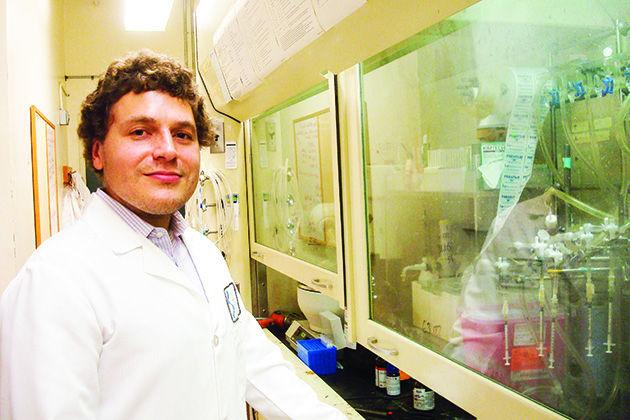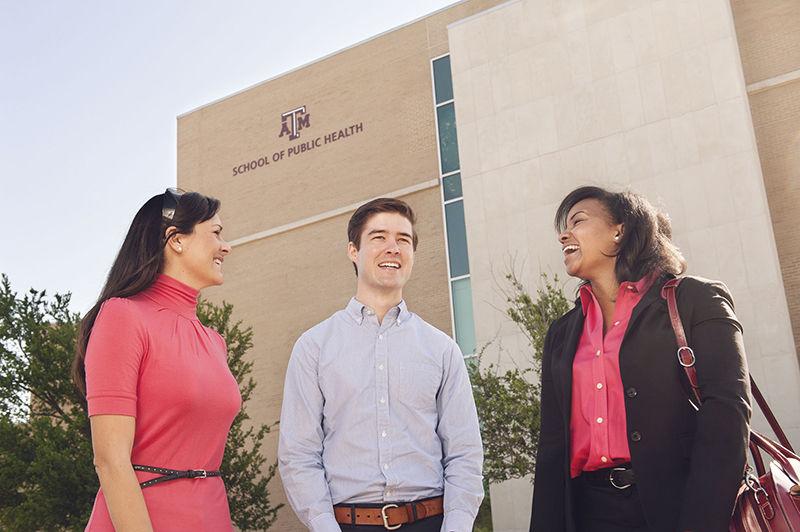One institute’s effort to bring notable cancer researchers to Texas institutions has landed the A&M Department of Chemistry a new associate professor this fall.
The associate professor, Jonathan Sczepanski, is one of three statewide recipients to receive a Cancer Prevention and Research Institute of Texas, CPRIT, $2 million First-Time, Tenure-Track Faculty Member recruitment grant. This one-time award brings cancer scientists and researchers to academic institutions across Texas.
According to a 2014 CPRIT report, an estimated 119,115 Texans were diagnosed with cancer and 44,150 died of the disease last year. The report states the CPRIT grants program has been highly successful in enhancing Texas’ cancer research efforts and increasing the external visibility of the state in this field.
To be eligible for the grant, Sczepanski was nominated by the Department of Chemistry. After an initial interview for a faculty position with the department head and another faculty member from the Department of Chemistry, Sczepanski said he then applied for the grant which was reviewed by the CPRIT and
According to the CPRIT website, in 2007 Texas voters approved a constitutional amendment establishing CPRIT. This authorized the state to issue $3 billion in bonds to fund groundbreaking cancer research and prevention programs and services in Texas. The website states the goal of CPRIT is to improve innovation in cancer research and development, as well as improve prevention programs in the state.
In keeping with the goal, Sczepanski plans to conduct research using ribonucleic acid to improve cancer diagnostics.
“My goal will be to utilize a new class of ribonucleic acids to target cancer related molecules,” Sczepanski said. “Using this approach, I hope to develop tools for cancer diagnostics, as well as novel cancer therapeutics.”
Francois Gabbai, head of the Department of Chemistry, said Sczepanski’s research program will complement ongoing efforts at Texas A&M.
“With an exceptional track record in DNA repair and aptamer RNA library synthesis and screening, Dr. Sczepanski will bring to Texas A&M — and indeed to Texas — a unique set of expertise and insight in nucleic acid chemistry as it relates to cancer research,” Gabbai said.
This field of study has interested Sczepanski since graduate school.
“As a graduate student studying DNA damage, I found myself amazed by the number of challenges our bodies must overcome every day in order to avoid carcinogenesis,” Sczepanski said. “This pushed me to look more closely at the pathways through which cancer forms and ask how these processes could be mediated using chemistry.”
Sczepanski said the decision to come to A&M was not a difficult one, and he looks forward to beginning his independent research at A&M.
“The Department of Chemistry at Texas A&M University is one of the best in the country,” Sczepanski said. “Furthermore, I received a great deal of support from both the faculty and staff following my initial interview at A&M. By recruiting me via the CPRIT grant, I know that the Department of Chemistry believes in my research goals and will offer me the best opportunity to be successful.”
Gabbai said Sczepanski will work independently from other professors with select students.
“He will start his own research group and will be given access to prime research space,” Gabbai said. “He has generous funding from CPRIT, which should allow him to quickly assemble a team of qualified graduate students and postdocs.”















